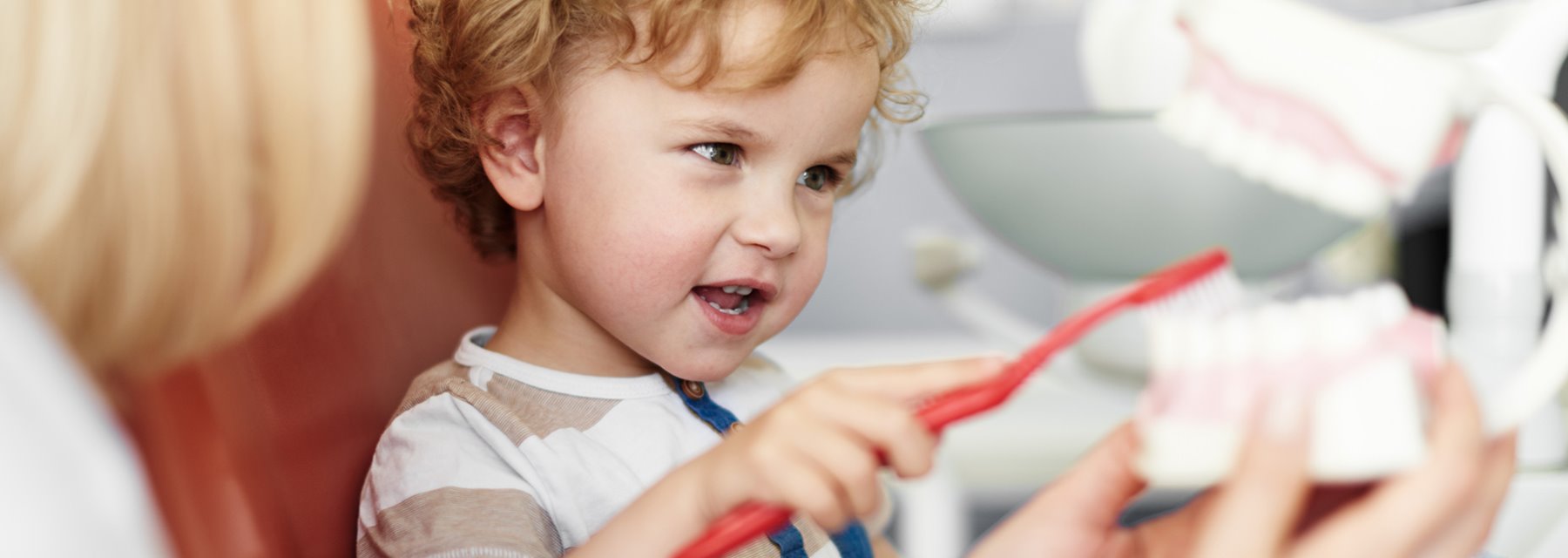
Early Treatment
Extensive decay can occur in baby teeth before the age of 24-30 months and often less than 12 months of age. Children who go to bed with a bottle or sippy cup, or whose liquid diet consists of juices and/or sugared drinks, have a greater incidence of decay. Early childhood caries (ECC) are most often due to poor or improper oral hygiene and diet, especially prolonged night-bottle feeding and use of the sippy cup. Sweet or acidic liquids are most harmful; i.e., apple juice, sweet tea, soft drinks, chocolate milk, even formula and/or breast milk. Plain water in the bottle is not harmful and will satisfy the need to have a bottle. Good oral hygiene habits are essential! Teeth can decay regardless of your child's age. Decayed baby teeth should be treated as they are to last several years. Not seeking care for decayed primary teeth can lead to dental abscesses, and in extreme cases, the need for IV antibiotics.
Early diagnosis and treatment is key in caring for the pediatric patient. Baby teeth need to be taken care of. The primary teeth serve as a guide for the permanent. The front teeth are not lost until approximately 5-7 years of age and the back teeth stay in place until 10-12 years of age. With this in mind, it is very important to keep the baby teeth healthy. Many times decay begins between the teeth and is not visible without X-rays. Once the extent of the decay is determined, a treatment recommendation is made as to what the best treatment method is for the child. The best treatment for baby teeth with decay throughout the enamel is the stainless steel crown. Once the decay is removed, it may be necessary to treat the nerve of the tooth by performing a pulpotomy.
